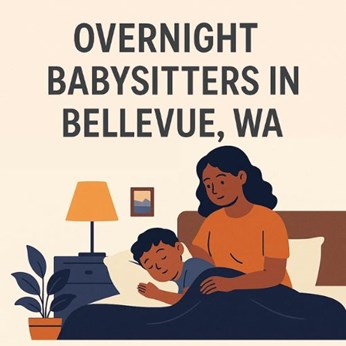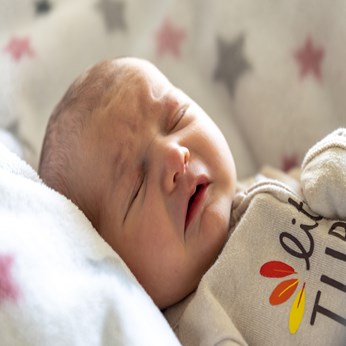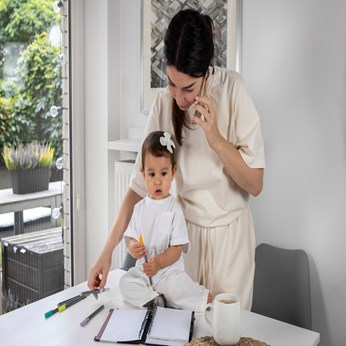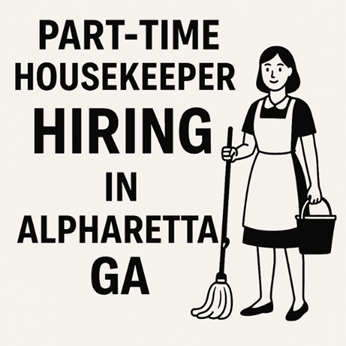How does your child learn to understand and grasp concepts?
Most newborns are fast learners; though they do not speak or fully understand the language you speak, they soon get tuned to your words and sentence pattern to figure out what you say. Studies indicate that babies start listening to their parent’s voice when still in the womb; he/she also observes and learns about the more complicated things like love, trust, time, and cause and effect that exist in his world.
When a child learns to understand and grasp concepts:
Your baby in the womb learns what others are saying and doing; even as a newborn he/she does not understand the meaning of words you use, but is able to pick up emotions like happiness, sadness, love, concern, anxiety, and anger.
You will find that your baby responds to his/her name when 7 months and is able to understand simple directives such as "No" or "Don't touch" when one is between 8 to 12 months. When your baby is around 2 years, he/she is able to talk in 3 or 4 word phrases.
Your child at 3 has a good vocabulary of a few hundreds and has a good sense of some of the rituals and activities of everyday life, such as food shopping, housecleaning, and that night means bedtime.
How a child learns to understand and grasp concepts:
Newborn to 1 month:
A newborn baby uses his/her senses to get some information about the world around him/her; though he/she does not understand as an adult, one is building a store of knowledge every day.Your baby responds to the tone of your voice, your smile and comfort of your touch and forms a version of the reality by how you respond to him/her; he/she feels secure when you are near him/her, stare lovingly into his/her eyes and come when he/she cries or is hungry. Your baby’s memory gets better, attention skills lengthen, his/her ability to speak improves and his social skills become more polished as his/her motor skills advance.
2 to 3 months:
Observing everything that goes on around him/her, your baby’s favorite activity is to watch everything happening around him/her. Your baby understands that you will soothe, feed, and play with him when he needs you. He also enjoys your response to his/her first smile. It is also during this period that he adds some cooing and gurgling sounds to his smile, initiating the first form of conversation with you.
4 to 7 months:
Your baby knows his/her name by now and responds by turning towards you when it is mentioned as he/she knows you are speaking to him/her. He/she gets attuned to your tone, will react joyfully when you are happy and cry or get distressed when you speak sharply. He/she can now distinguish between strangers and people he/she knows and may cry when put in the arms of someone he/she does not recognize.
8 to 12 months:
Your baby comes to understand simple requests as “No” when he/she should not do something; he/she may pause and look at your face or shake one’s head in return.

He/she tests and understands your response to his behavior and stores your response in his/her memory bank. Ex: Throws food on the ground to observe your response. Your baby also begins to associate gestures with certain actions and words, such as waving goodbye when someone leaves the room or shaking his head to refuse something to eat.
12 to 18 months:
Most babies understand a word before they say it; by 18 months he/she will be able to understand and use some words. He/she is able to understand the directions for 2 separate actions, like "Pick up those building blocks and put them in the toy chest."
19 to 23 months
Your child now understands that what he wants does not match yours, so he tries to assert himself/herself, like his refusal to hold your hand when you want him/her to. Your child at this age understands concepts as space and dimension and may be able to put a simple puzzle together; he/she understand the difference between various shapes and will be able to place each shape in its appropriate spot in a shape-sorter.
He/she learns to figure out how some things like a jack-in-the-box works; this skill proving very useful when he/she is ready to toilet train.
At this stage your child comes to understand that there is a connection between the need to empty his bowels and using the potty; he also understands that when he/she pulls the handle to flush; his urine and bowel movements will disappear down the drain.
24 to 36 months:
Your child now understands language pretty well and comprehends more than he/she can say; most children at 2 have a vocabulary of 50 words which becomes 200 by the time he/she is 3 years. He/she will also turn one’s attention to more complicated concepts like emotions.
This is the stage when a child understands the basic building blocks of relationships, so it is very necessary that you treat him/her well in the first few years of life. When you shower him/her with affection, respond to his/her needs and keep him/her safe you will have helped one to become a secure and optimistic child.
By watching all that you do throughout the day your child begins to comprehend some of the more complicated aspects of everyday life, like food shopping, telling time, and housecleaning. He/she learns how to treat other people by imitating you; so always be kind and loving.
Above 3 years;
Your child rapidly continues to learn more words and also comprehend more complex ideas and situations, He/she is soon able to tell the difference between fantasy and reality, and understand rules.
Your primary role as a parent:
You could help your child develop good communication skills by talking and reading to your child; done in infancy it can help develop speech and other skills as he/she gets older. Reading regularly to a child would make him/her feel that reading is a pleasurable, calming, and a nice way to spend time with you.
Next play with your child to help him/her learn how the world works; introducing your child to age-appropriate toys and games to encourage his/her mental and physical development. The best way to raise a happy and confident child is to be affectionate and loving at home. Be positive and shower your child more with praise for good behavior than point out bad behavior.
A cause for concern:
Consult his/her doctor if by the age of 2, he/she doesn’t know what to do with common objects such as a phone, a brush, or spoon are, does not follow simple instructions, speak 2 word sentences, does not point to body parts and does not make good eye contact.
Also consult your doctor if by the age of 3 he/she can’t be understood by strangers, cannot operate simple puzzles, walks or runs unsteadily or loses a skill he/she once possessed.
Image Courtesy: Google
Take the next step toward your goals
Share your requirement and find the best care providers in your area
-
Looking for a caretaker’s job? Build your profile and get in touch with families in your vicinity.
-
Discover nannies, babysitters, cooks, housekeepers, pet sitters, and elder care under one roof.
-
Get all the support you need to run a successful care center.
-
Search for appropriate centers near you depending on your needs.
Care Corner Insights: Blog Library

Overnight Babysitters in Bellevue, WA for Business-Travelling NRI Parents: Safety & Policies
For many NRI parents living in Bellevue, WA, frequent business trips are a reality. While traveling, one of the biggest concerns is ensuring your children are safe, cared for, and emotionally supported during overnight stays. Overnight babysitters ca

Indian Home-Style Cooks in Queens, NY: Tiffin-Style Weekly Meal Prep from Your Kitchen
Queens, NY, is home to one of the most diverse food cultures in the country, and Indian cuisine holds a special place among families looking for authentic, comforting meals. While restaurant takeout is convenient, nothing compares to the taste and nu

Baby Sleep Problems: What is Sleep Regression and How to Handle It
If you’re a parent, you know that baby sleep is one of the greatest mysteries of life. One day your little one is snoozing like an angel, and the next day they’re suddenly waking up every hour, fussing, or refusing to nap. Before you panic, there’s a

What is Validation Therapy? A New Approach to Dementia Care
Caring for loved ones with dementia is one of the most emotionally challenging journeys a family can face. Traditional methods often focus on correcting memory lapses or redirecting confused thoughts—but that can sometimes lead to frustration, stress

What is a Part-Time Nanny and Do You Need One
Parenting is a beautiful journey, but let’s be honest—it can also be exhausting! Between work deadlines, household chores, and family responsibilities, sometimes there just aren’t enough hours in a day. That’s where part-time nannies step in, offerin

Part-Time Housekeeper Hiring in Alpharetta, GA: Weekly Schedules, Pricing, and Must-Do Tasks
Keeping a home spotless while balancing work, family, and personal commitments can be overwhelming. For families and professionals in Alpharetta, GA, hiring a part-time housekeeper is one of the most practical solutions. Whether you need help once a

Affordable Daycares in Irving, TX with Indian Menu Options: Parent Reviews & Enrollment Tips
Finding the right daycare for your little one is never an easy decision—especially if you’re looking for one that fits your budget and offers familiar food options like an Indian-inspired menu. For parents in Irving, TX, the good news is that several

Can Babies Sleep on Their Side? Tips for Safe Baby Sleep
When it comes to newborns, every parent worries about the smallest details—how they sleep, what they wear, even which way they turn their tiny heads. One common question that pops up is: “Can babies sleep on their side?” The short answer? Not recom

8 Benefits of Hiring a House Cleaner for Your Home
Let’s be honest — keeping a home sparkling clean while juggling work, family, and daily life can feel like a full-time job in itself. That’s where professional house cleaners step in, turning the chaos into calm. If you’ve been debating whether to br

How to Care for a Gassy Baby? What’s Normal and what’s not – Expert Advice
If you’re a new parent navigating the world of burps, bubbles, and baby fussiness—welcome to the club! Gas in babies is incredibly common, especially in the first few months. But how do you know what’s normal and when it’s time to call in expert help